Researchers have access to a wealth of material relating to the Second World War in the significant and unique museum collections in The Linen Hall, Belfast.
The Linen Hall on Donegall Square North, Belfast is the oldest library in the city. It is a historic institution, first founded as the Belfast Library and Society for Promoting Knowledge in 1788. Throughout the years of the Second World War, the library remained open and continued to serve the needs of its members.
In fact, the library continued to take in new artefacts and manuscripts to boost the already impressive collections. In 1940, Mr. W. Bruce R. Joy donated an original letter-book that once belonged to George Macartney, Sovereign of Belfast. The letters dating between 1660 and 1681 gave an intimate view of life in the small town of Belfast at the time.
During the first few years of the Second World War, the Governors of the library noted a falling-off in the lending of works of fiction. At the annual Governors’ meeting in 1940, Major Robert Workman, President of the establishment noted:
It speaks more for the good sense and correctness of principle in the people of Belfast than any comments or praise whatever I can do. I felt, while sitting there that here was an atmosphere of truth, entirely new. What would the reading community of all nations be, if youth had access to such libraries as these, and no others?
Others in attendance included Vice-President Mr. A. Albert Campbell, Honorary Secretary Mr. R.W.H. Blackwood, Honorary Treasurer Mr. A.H. Muir, Major E.W. Shewell, Mr. W.H. Patterson, Mr. A.S. Megaw, Mr. J. Malcolm Capper, Right Honourable Samuel Cunningham, Dr. D.A. Chart, Reverend J.A. Kelly, Mr. S. Andrews, Mr. F.J. Cole, and Mr. A.M. McKisack.
The 1940 meeting took place as German troops began to sweep through France. Mr. A. Albert Campbell put forward a motion, seconded by Professor Gregg Wilson, which would benefit British service personnel. The scheme would offer the library’s facilities to members of His Majesty’s Forces on temporary service in the Belfast area.
The scheme provides that these men shall be allowed the privileges of members for three months on payment of 10s, 6d, together with a deposit of 10s the latter sum to be returnable to the depositor on his ceasing to use the library.
The Right Honourable Samuel Cunningham put forth that there were a great number of educated men in the ranks. He believed the library should be open for them in their pursuit of knowledge. Major E.W. Shwewell agreed, adding that he had heard of the dullness and lack of entertainment for visiting troops. This applied even more to those who did not frequent pubs and dance halls. It would be appropriate for the Linen Hall Library to offer them a place to go.
By the time of the annual Governors’ meeting of 1941, Belfast was a much different city. The Luftwaffe had attacked with a series of raids in the months prior in what would become known as the Belfast Blitz.
We have passed through a year of difficulty and through extraordinary and fateful times, but the Library has been preserved and its work carried on for the benefit of its members as in all the long years of its history.
Understandably, in 1941, there was a decline in the number of books issued by the Linen Hall Library. With war raging across Europe, times were hard. Many publishing houses in England had suffered as a result of Luftwaffe attacks, but in spite of all, books were being published and shipped to Belfast.
The numbers of members and subscribers remained constant throughout the Second World War. As time went on, more and more members of the services including Officers, N.C.O.s and all ranks made great use of the library’s facilities.
An interesting artifact from the Belfast Blitz features in the collections of The Linen Hall. The A.R.P. Warden book contains hundreds of documents relating to search and rescue efforts, unexploded bombs, and dealing with casualties.
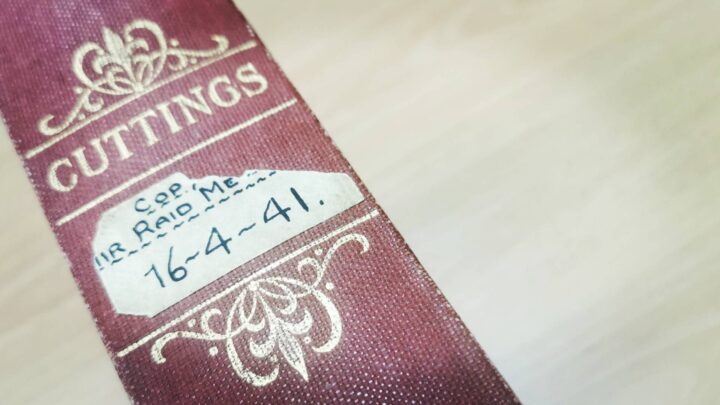
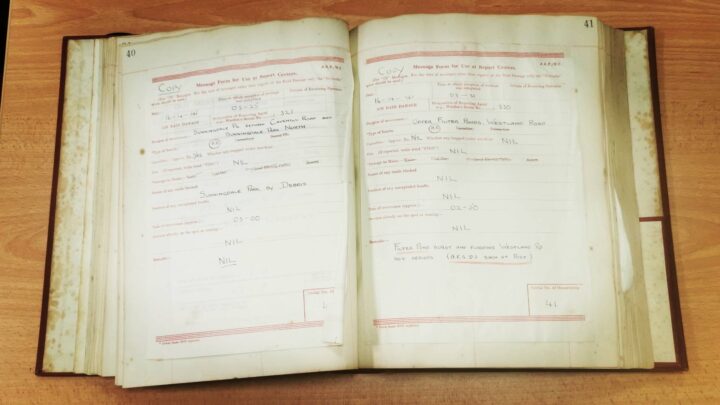
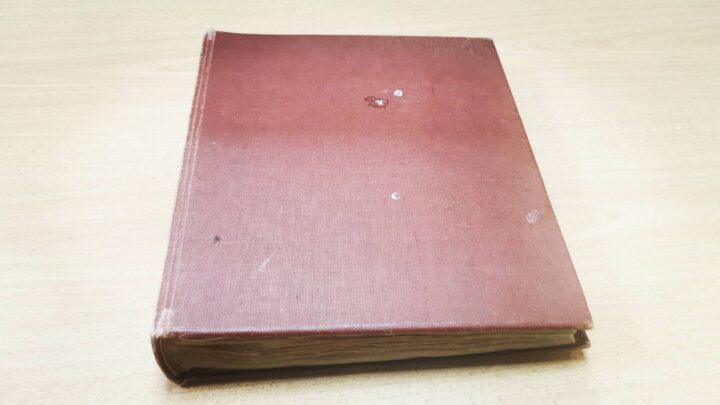
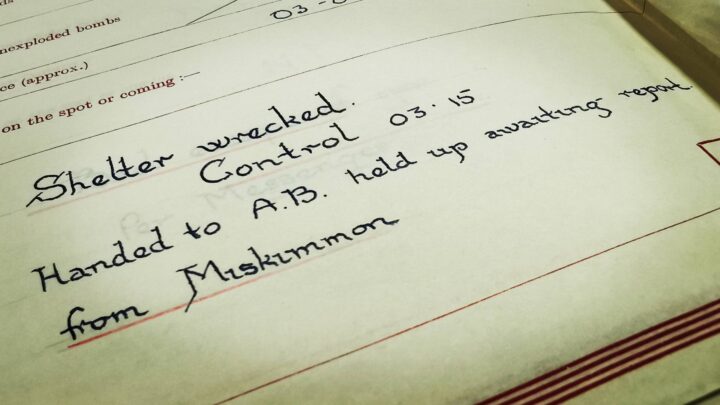
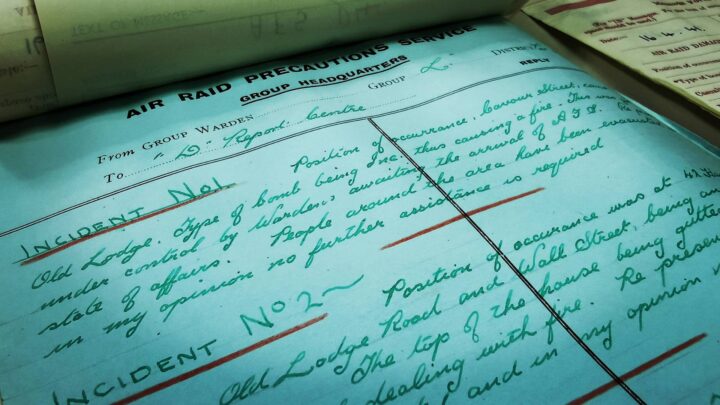
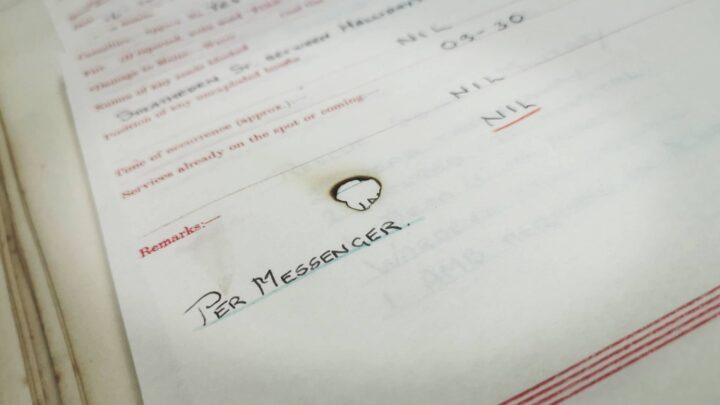
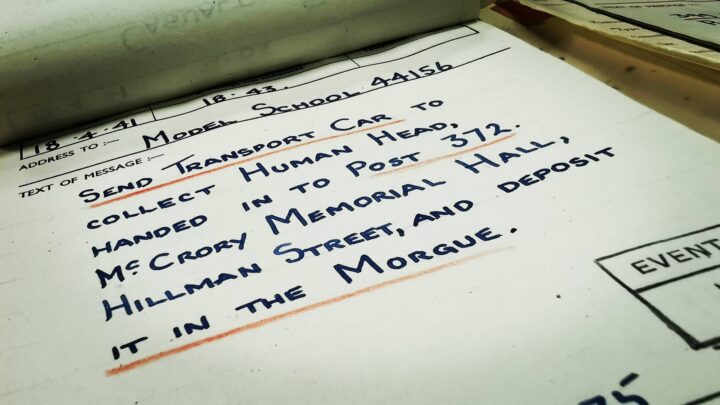
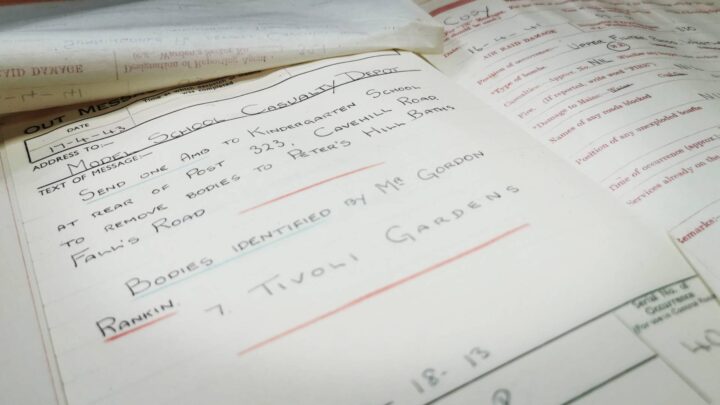
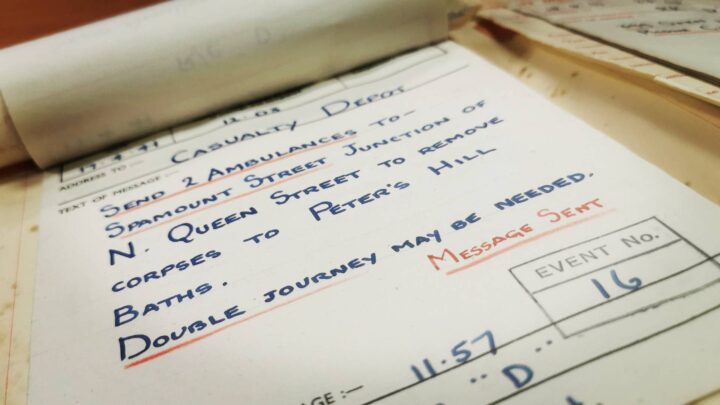
As bombs fell on Belfast, the Linen Hall Library escaped damage. On the opposite side of the street, a section of the roof of Belfast City Hall sustained serious damage. The Governors of the historic Belfast library had taken precautions, however. They took steps to protect some of the most valuable and precious artefacts. These included early editions of the Belfast News-Letter, and the Joy and Macartney manuscripts. Some possessions remained in specially-fitted strong rooms within the library while others moved to houses in the countryside.
The 1941 meeting also noted the extra work undertaken by Librarian Mr. Frank J.P. Burgoyne. His workload increased following Sub-Librarian Mr. J.H.M. Woods’ decision to re-join the army, and the untimely death of Sergeant Smith. At the meeting, differing voices commented on other aspects of life in wartime. Mr. Malcolm Capper thought there were too many “war books” on the shelves. A number of others agreed with this sentiment. Major E.W. Shewell commented on how wonderful it was that the library’s amenities had suffered so little interference.
Within the archives of The Linen Hall in Belfast is a leather-bound album of dozens of photographs. Taken by an unknown photographer, they show the damage caused to the north and east of the city in April and May 1941.
In August 1944, Miss Kathleen E. Ireland of Hillsborough Drive, Belfast received a letter containing a hand-painted silk handkerchief commemorating the events of D-Day.
Many imagine the American landings on Omaha Beach on 6th June 1944 to be like the opening scenes of 'Saving Private Ryan'. A U.S. Signal Corps Message book tells part of the real story.
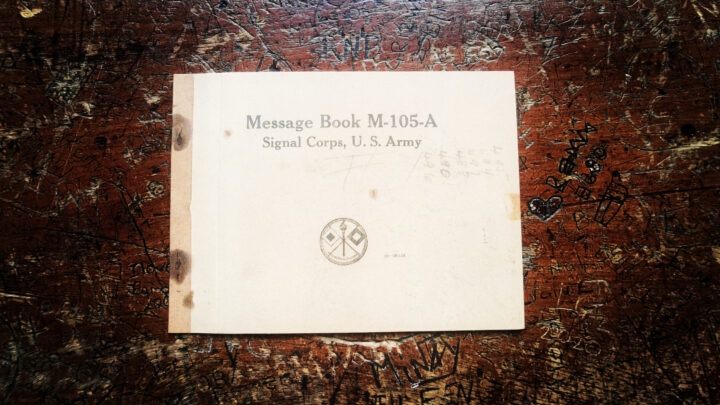
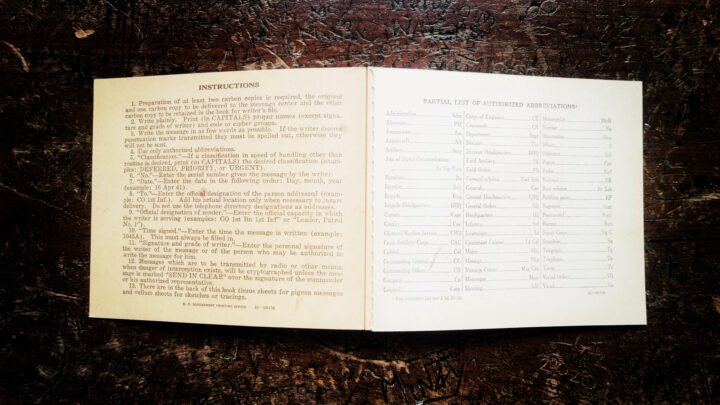
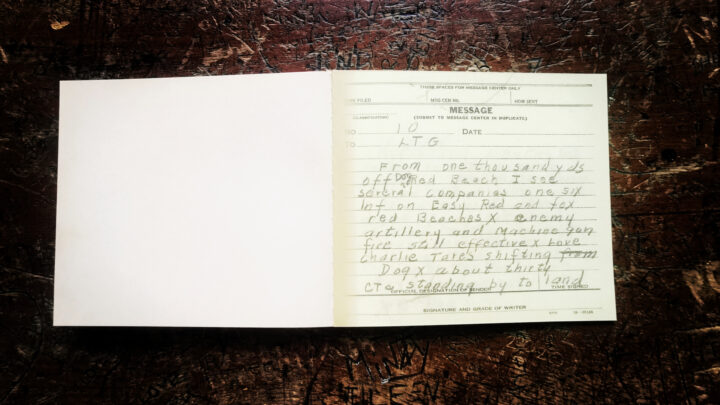
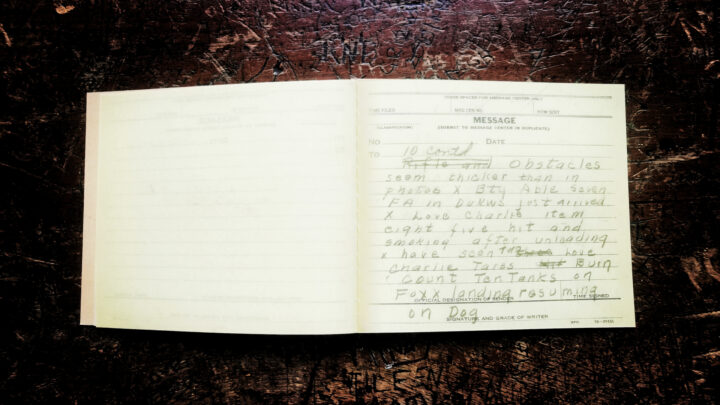
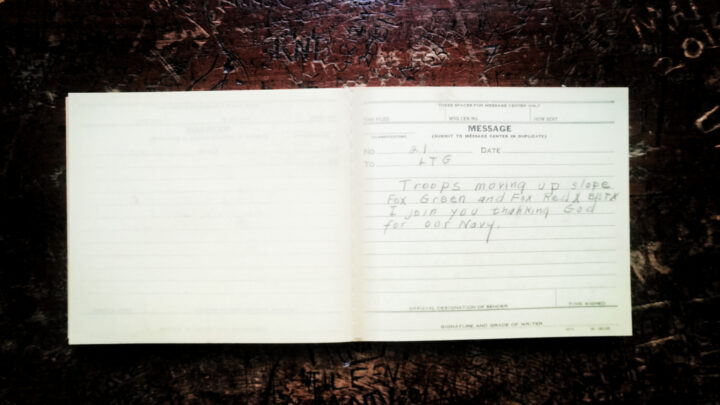
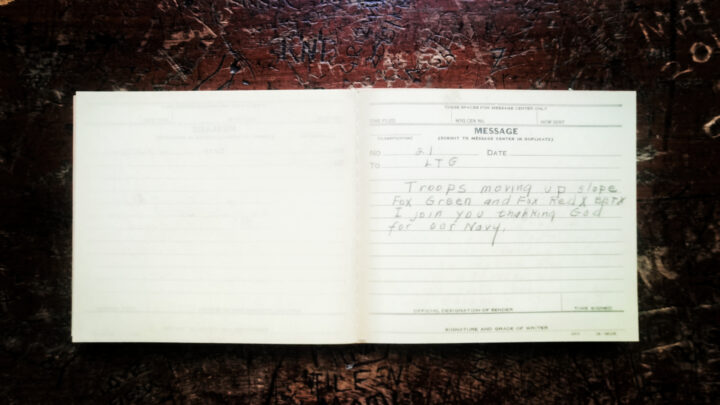
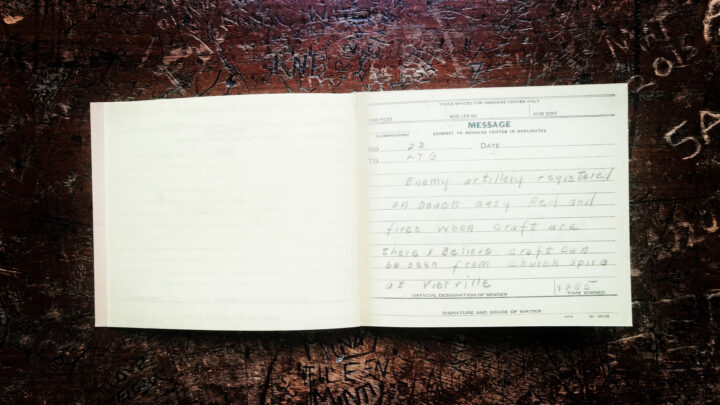
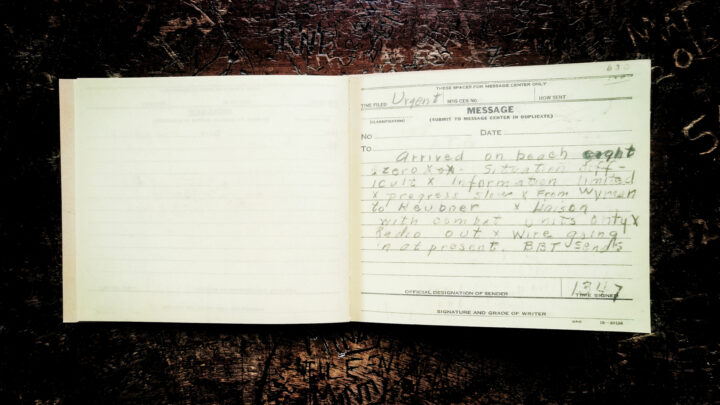
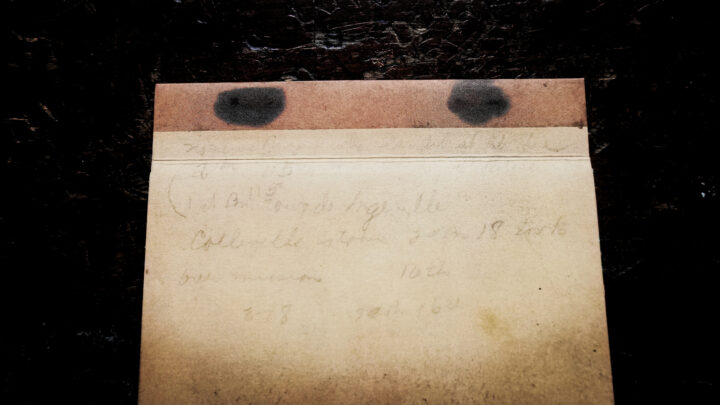
By the annual Governors’ meeting of 1945, the Second World War in Europe had come to an end. Belfast had witnessed large-scale celebrations on Victory in Europe Day, and the Linen Hall Library was in good health.
The Linen Hall Library, Belfast, with all its irreplaceable treasures collected by the loving care of generations, is today in greater vigour than ever, carrying out its task of storing knowledge and dispensing it to its members.
The Linen Hall remains one of Belfast’s most popular visitor attractions and its membership continues to grow.
On 17th June 2023, The Linen Hall partnered with the University of Oxford to hold the first 'Their Finest Hour' digital collection day in Northern Ireland. The event was a success with oral histories recorded, and hundreds of items photographed and scanned for the project's digital archive.